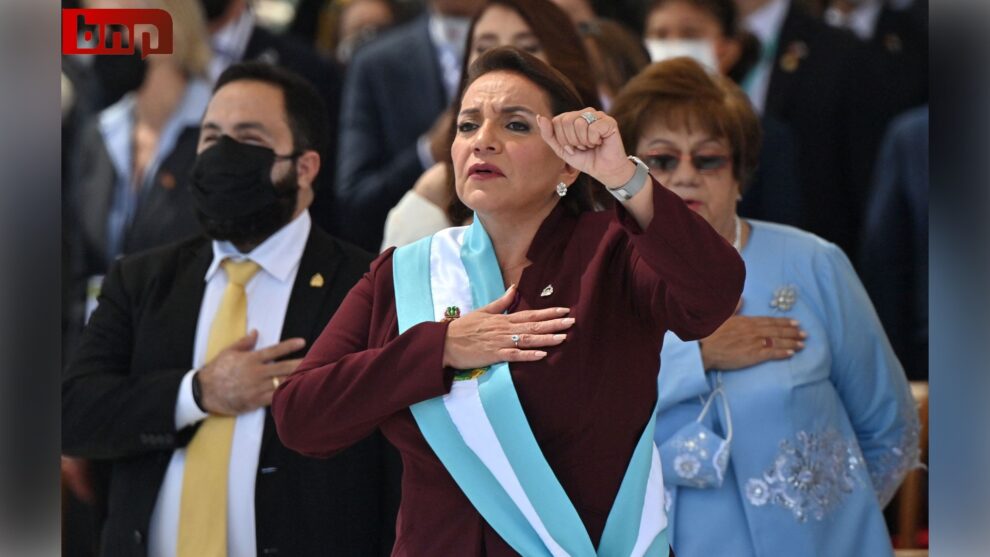TEGUCIGALPA, Honduras (AP) — Honduran lawmakers will begin choosing the 15 members of a new Supreme Court this week in a process with implications for the administration of President Xiomara Castro, who promised a sharp break with her predecessor’s “dictatorship.”
If lawmakers from Castro’s Liberty and Refoundation party, LIBRE, give her control of the high court, she will have the same lock on all three branches of government that President Juan Orlando Hernández enjoyed before her.
It was that control that allowed Hernández to seek re-election to a second term despite Honduras’ constitutional ban. He now awaits trial in the United States on drug trafficking charges.
“It’s never healthy for the ruling parties to control all state powers,” said constitutional lawyer and analyst Juan Carlos Barrientos. LIBRE “used to talk about a dictatorship, because in the previous administration he had all of the powers, but now that they are governing they want to be dictators too.”
Castro’s party holds a majority in the congress, but will need to pact with others to select members for the court. Its goal will be to win at least eight seats, a majority on the country’s highest court, said Juan Carlos Aguilar of the nongovernmental organization Association for a More Just Society.
There has even been talk of trying to keep Hernández’s National Party off the court entirely, though that seems unlikely because a super-majority — 86 votes in the 128-seat chamber — are required to confirm a new justice to the court and LIBRE only has 48 of its own, while the National maintains 43.
“If the National Party is left out, it would be dangerous because it would replicate the model the National Party implemented during its time (in power), to have control of all three state powers,” Aguilar said.
“We know that the rule of law has suffered a regression,” he said. At times the court has been used to consolidate political plans rather than reach legal decisions, he said, noting the court’s decision that allowed Hernández to seek re-election in 2017.
With LIBRE’s relatively slim congressional majority, firm control of the court would also give Castro’s administration the option of trying to legislate through decree and legal rulings if they couldn’t pass legislation, Aguilar said.
Control of the court could also potentially give Castro’s administration and members of her husband Manuel Zelaya’s earlier administration some degree of protection from a United Nations anti-corruption mission that is in the works. An impartial judiciary supportive of Castro’s stated anti-corruption mission would also be a key ally for the U.N. backed effort.
Lawmakers will begin the process of gathering votes and selecting court justices Wednesday when a new legislative session begins.
On Monday, a selection commission announced a list of 45 candidates that it had winnowed from a pool of about 170 applicants through a series of tests, background checks and public hearings.
Members of Congress will now choose from those 45.
“We have finalized a transparent labor,” said Julissa Aguilar, a member of the nominating commission. “Now we await Congress to make a selection according to the interests of the people and the country, to choose the most ideal people for the position and move nearer to the international standards for the practice of the judiciary, leaving aside partisan political interests.”
Source: Associated Press









